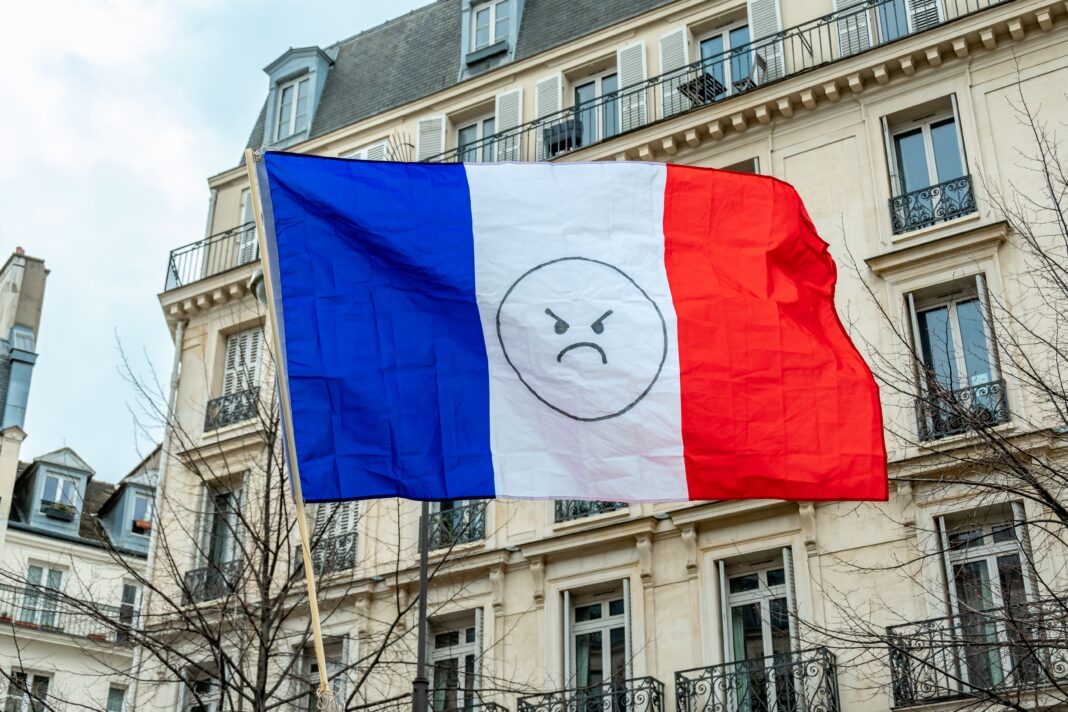by Ambra Visentin
Violence has become the norm in France, even against peaceful protests, two weeks after the killing of 17-year-old Nahel by security forces. On Saturday, 2,000 people demonstrated peacefully in Paris in memory of Adama Traoré, who was killed by police on 16 July 2016 at the police barracks in Persan, a village on the outskirts of Paris. The prefecture had banned the demonstration. Anna and Youssouf Traoré, Adama’s siblings, took part in the march, as did the families of the police victims, who have not given up demanding justice for the shattered lives of their loved ones. Despite the peaceful nature of the demonstration, the police responded with violence. In a macabre reference to the killing of George Floyd in Minneapolis, Youssuf was pinned to the ground with one leg around his neck before being taken to the police station, from which he emerged a few hours later on a stretcher. This is a phenomenon recognised by many experts in France as a ‘symptom of the impossible dialogue’ between the state, the police and citizens.
France is now paying the cost of this dangerous impasse, both economically – the material damage caused by the riots in recent weeks is estimated at over a billion euros – and in terms of its image. Indeed, there has been no shortage of ‘calls to order’ from the European Union. European Justice Commissioner Didier Reynders called for reflection on the ‘violence that occurs in France at every protest (…) and on the way in which the maintenance of order is organised’. The French government rejected the criticism, pointing out that the European Commissioner for Justice had ‘no competence’ to speak about the maintenance of order in France. And external ‘interference’ in the so-called ‘hexagon’ (France) is not welcomed by the UN either. The High Commissioner for Human Rights, through her spokeswoman Ravina Shamdasani, said on 30 June that France must ‘seriously address the deep-rooted problems of racism among the forces of law and order’. The UN officials called on ‘the authorities to pay attention to the use of force by the police’ during demonstrations, ‘always respecting the principles of legality, necessity and proportionality’. The French Foreign Ministry said that ‘any accusation of systematic racism on the part of the police is unfounded’.
If France does not want to talk about its ‘dirty laundry’ abroad, it cannot do the same at home and is forced to tackle one of the problems that has been left hanging for too long: the question of reforming the state police and the laws governing their use of firearms. According to the journalist Valentin Gendrot, author of the book ‘Flic’ (Policeman), who spent two years infiltrating the state police, the training of the police is “inadequate” in several respects. In particular, Gendrot recalls from his experience, ‘after the training, it was necessary to refresh the memory of the safety of the weapon before going on duty, so much was the learning of its use’. Regarding the use of weapons by the French police, the newspaper Le Monde published an investigation showing how police regularly use the Cougar grenade launcher without having learned how to use it properly. The grenade launcher ‘does not meet the manufacturer’s standards for use’ and therefore police officers ‘run the risk of being injured or even killed’. The use of the so-called ‘chokehold’ further increases the number of victims caused by the police.
Even in the legislative sphere, there are those who identify ‘urgent issues to be resolved’. Raquel Garrido, deputy (LFI) for Seine-Saint-Denis in the Île-de-France region and member of the Commission on Constitutional Law, Legislation and General Administration of the French Republic, asks the question ‘when is the use of arms absolutely necessary, useful and effective in the fight against crime? In this sense, she states that “regardless of the judicial outcome of the voluntary murder of Nahel, it is absolutely necessary to change the doctrine on the use of armed force by the police’. According to Garrido, the text of the 2017 Internal Security Code Law, which limits the legal conditions under which the police can open fire, deliberately uses terminology that is too vague and should be revised. Frédéric Péchenard, former head of the national police, also points to the limitations of the law in question and links them to the quality of police training: ‘In the field, we react by instinct. What makes the difference is training and a clear idea of the law: do we shoot or not? However, Interior Minister Gérald Darmanin has ruled out any changes.
Another issue that urgently needs to be addressed is the widespread racist attitudes among police officers, which Guerrido describes as ‘criminal’. French President Emmanuel Macron does not seem to want to tackle this issue head on, even though police reform was one of the projects he announced before winning the Elysée: ‘I want to change the culture, the method of management and recruitment in the police’, he told Mediapart in May 2017, denouncing the ‘core of the problem’: stops that are too frequent in France and tainted by ‘discrimination’. After the ‘yellow vest crisis’, which almost cost him the presidency, Macron seems to have lost this instinct and is trying to avoid the debate on the performance of police duties in the service of the public. Meanwhile, the fuse of the riots does not seem to be going out, and soon there may be no choice but to open the Pandora’s box of police reform.
Cover image by HJBC on Shutterstock
























